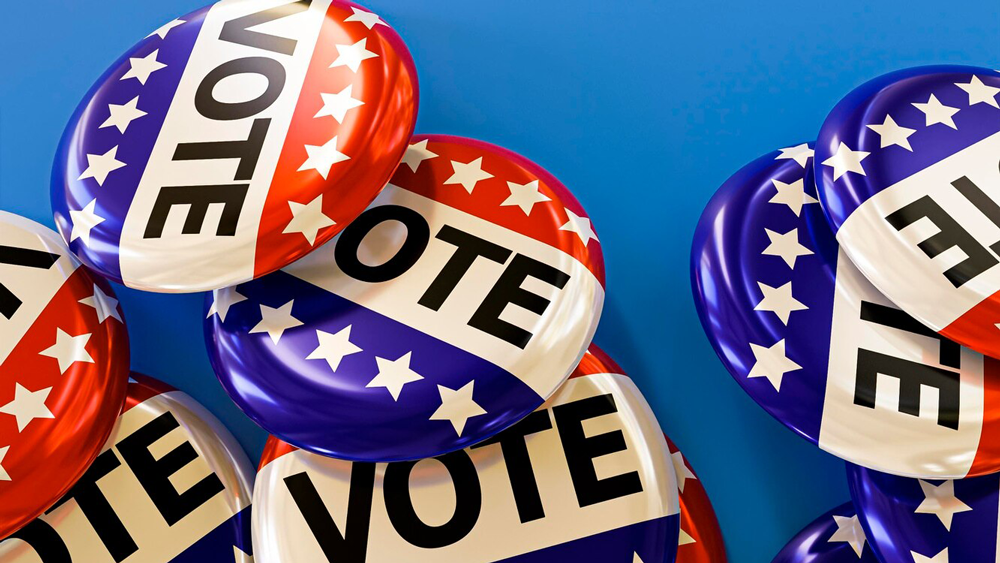With numerous allegations of voting irregularities making headlines in the media, do you believe that your vote genuinely holds significance and can influence outcomes? Are elections prone to manipulation, in your opinion? What’s your perspective on the electoral system? Let’s talk about it…
Frances Casales Potter: “Your vote is incredibly valuable if you believe in preserving democracy in our country. The hard truth is, our democracy was at risk of being lost, and not voting only exacerbates that risk. There are those who are actively working to transform our nation into one ruled by a dictator, resembling countries like Russia or Venezuela. By voting, you have the power to shape the future for your children and ensure that democracy prevails.”
David Lemon: “I think you’re suffering from a severe misunderstanding. Your voting is the part that’s bolted onto the electoral system. Not the other way around.It’s not intended to make any votes count. As designed it doesn’t even require elections.It is a system that allows an arbitrary number of states to negotiate and choose a leader for their union.Voting only shows up as a consequence of your state deciding at some point in the past to hold a popular election in order to determine how it would allocate its electors instead of your state legislature just appointing them. Currently all 50 states do this, but not all of them have always held elections for this purpose.”
Ron Lane: “No, because the state imposed “winner takes all” distribution effectively disenfranchises all who voted for the other candidates and allows a candidate to “win” the EC vote while winning less than a majority in the popular votes.”
Gary: “The president and vice president are elected by the states.The idea of “every vote mattering” is a made-up talking point. That’s not how a federal republic works.”
Mike Jones: “First, I’d say to them that the electors who make up the Electoral College are chosen through the votes of people in the states and that most states have laws requiring the electors to vote the way the people choose. Second, and much more importantly, I’d point out that there are a lot of other races on the ballot and those may be just as important as the Presidential race.”
Anne Horacio: “I would say that person is probably not intelligent enough to vote anyway, so leave them alone. The popular vote is not how presidents are elected… We are a representative republic not a direct democracy. Do they not teach 5th grade civics any more?”
Rich Holton: “The Electoral College does decide who becomes president of the United States. But voting determines who is in the Electoral College. However, I can understand that someone from a non-swing state might feel their vote is pointless. That’s one of the big problems with the current method of determining our President — it makes many people’s votes irrelevant. On the other hand, I would say this year in particular, surprises may occur in some non-swing states. So it’s important to grit your teeth and vote, even if it seems pointless. You never know how things will work out.”
Don Emerson: “I think that I would point out that the reason the Electoral College has on very rare occasions decided our presidential election, is that the election itself was literally “too close to call” based on a count of the popular vote. In recent years, many of our presidential elections have been literally, within a 1% or 2% margin one way or the other, with the popular vote so close that from a practical standpoint it is a tie. When tens of millions of votes are cast, a margin of a few thousand, or even a million or so, is a very close race. So I would point out that our voter turnout is ridiculously low in the US, and that if we want to quit allowing the Electoral College to snatch a razor thin victory away from a deserving candidate, and hand the country over to someone who is not fit for the office, our voter turnout needs to improve, considerably. On average, around 45% of our eligible voters do not cast a ballot in even the most crucial elections. If they would participate, it would be possible to bury an unfit candidate in a landslide of popular votes. And if we did that, there would be no need or opportunity for the Electoral College to intercede in our elections.”
Brenda Jacono: “I doubt I would say much. If someone believes it is pointless then that’s what they believe. It is difficult to change minds and you can explain to them how the whole thing works and they will probably not change their mind anyway. Unless I truly believed that they might have a sincere interest in learning about how things work, then I’d let it go.”
Thomas Hunter: “No. The electoral college gives less populated states more power in deciding who becomes president. And it is what the founding fathers of the country wanted.”
Eric Widdison: “In 2020, U.S. Presidential election, primarily focused on the chance of then-President Donald Trump winning another term. Trump’s prospects were effectively dashed following the election, particularly when Joe Biden secured enough votes in Pennsylvania to make it nearly impossible for Trump to catch up. A formal congressional challenge to the electoral vote, suggests that some House Republicans and possibly a Senator might support such a challenge. Even if such a challenge were made, it would not alter the ultimate outcome of the election. The House of Representatives would have had to decide whether to reject votes for Biden or accept alternate electors who voted for Trump.. The primary consequence of challenging the electoral votes would have been a delay in certifying Joe Biden as the winner, possibly affecting his inauguration. Nonetheless, no matter what transpired, there was no way to keep Trump in office beyond January 20, 2021, and he had indeed lost the election. The 2020 election results were certified, and Joe Biden was inaugurated as the 46th President of the United States on January 20, 2021, following the legal processes and constitutional norms of the election.”







